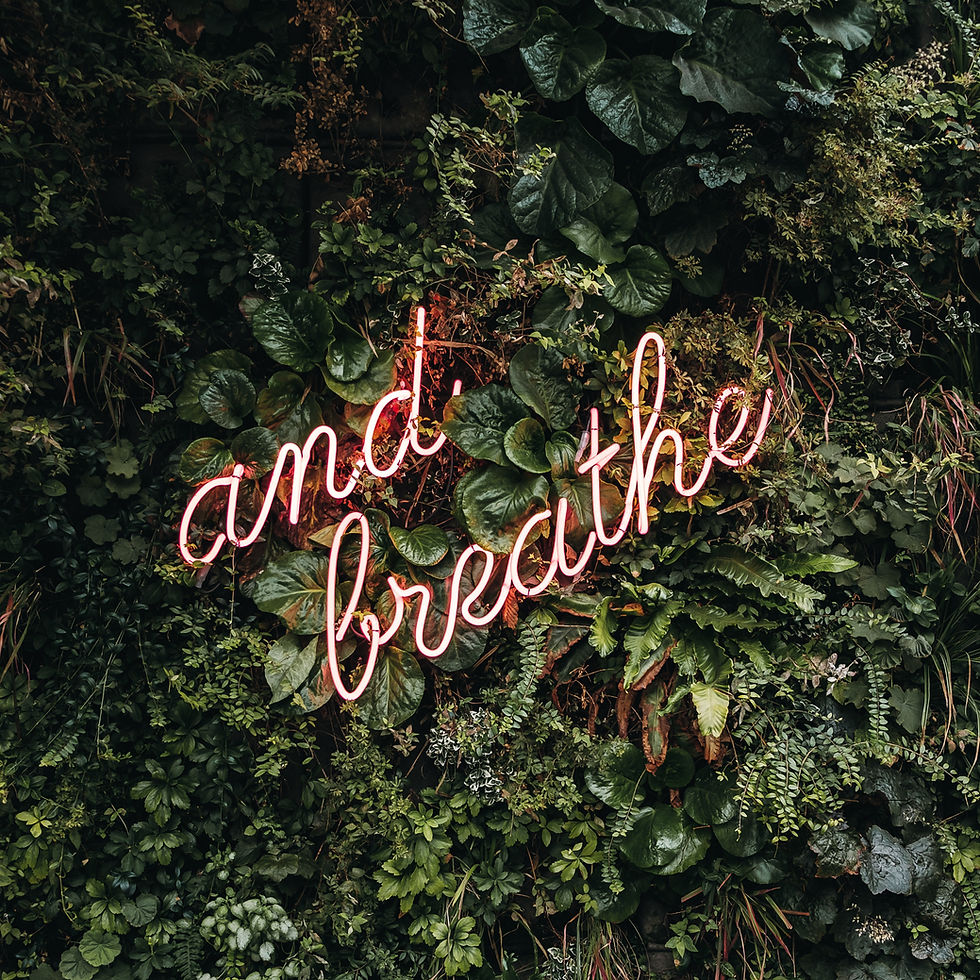Train Your ADHD Brain. A Neuroscientist Interview.
- Jul 18, 2019
- 3 min read
Updated: Mar 6, 2025
Do you have ADHD and/or executive function deficits?
With all of the ADHD websites, education options, tips, and tools available do you find yourself becoming even more overwhelmed with what to and what not to try?
Trust me, I get it, you're falling even further into the rabbit hole of information. Analysis Paralysis kicks in and you have totally given up on all ideas!
I recently had the opportunity to interview Neuroscientist and owner of The Outsmart, Shannon Sanguinetti, on Coaching With Brooke's Facebook Live. The two of us spoke about the connection between ADHD and Neuroscience and covered topics such as "What is Neuroscience?", "The Frontal Cortex and Synapses", "Medication vs. Behavior", "Thought Processes to Avoid and to Promote", and "The Way Parents Respond to Their Children."
Check out some of her QUICK TIPS to help improve attention. The best part is that they're all backed by neuroscience!
To help get through your day more thoroughly, we will start with the morning and move through the remainder of the day.
MORNING
1) DRINK:
Warm lemon water.
All of you coffee lovers out there, LISTEN UP! You must EAT before you drink your coffee!
WHY: Your adrenal glands can be depleted otherwise. It might feel good to drink your coffee immediately, but overtime it will deplete the resources your body needs to pay attention.
2). LIGHT WORKOUT OR YOUR FORM OF MEDITATION:
WHY: A light workout/meditation in the morning will help redirect blood flow away from brain regions not required for attention and into the limbs. Followed by getting right into the task you'd like with help with completing the task.
(Ex: Stretch, take deep breaths, do pushups, squats, yoga, any 5 minute workout that you enjoy will do.)
3) DIET:
Eat healthy fats (ex:avocado, coconut oil)
Omegas (ex: Wild Fish)
Green Leafy Vegetables (ex: spinach, chard, bok choy)
Reduce sugar intake, especially added sugar and don't consume it in the morning. If you have sugar have it after fats.
When eating sugar, eat it with protein.
Eat healthy fats with green leafy vegetables.
WHY: Fat yields sustainable energy and greens are required for nutrition.
THROUGHOUT THE DAY
1) CELEBRATE YOUR TASK COMPLETIONS/ACCOMPLISHMENTS:
WHY: This will establish an association complex between completing tasks and happiness.
(Ex: A small congratulatory dance, listening to your favorite song, etc.)
2) BACK TO LIGHT WORKOUT/MEDITATE:
If you find yourself off task, take a quick break and reset your mind with another mini workout or another form of meditation.
WHY: Same reason you do it in the morning!
3)FLEXIBLE SEATING:
Sitting at a desk does not work for everyone!
WHY: Standing activates the brainstem, the brainstem is a large factor in attention
(Ex:Consider standing on a BOSU ball or sitting on an exercise ball.)
4) REMEMBERING TASKS
Associate a task with something that helps you to remember to do it or consider the main reason why it needs to be completed as motivation.
WHY: This solidifies the memory in your mind.
(Ex: Every time you leave your office at the end of the work day think of the Britney Spears song "Oops I did it Again,"to remember to go to the Grocery Store.)
5. IF YOU ARE UNINTERESTED WITH SOMETHING:
Pair it with something that interests you.
WHY: This is how your brain is wired, something needs to have relevance to your life to stick
(Ex: If you are learning physics, think about the fun time you were on a rollercoaster and use the personal experience to relate the lesson you’re on.)
6. LEARN BY DOING:
Learning by doing is a proven method that works for everyone and has worked for centuries. It's okay for you to do things your way as well. One size does not fit all.
WHY: our brain must actively complete the task, as opposed to just watching, listening or being told what to do. Needing to coordinate multiple functions makes it harder for wandering thoughts to creep in.
(Ex: Ask the person instructing you to show you and then coach you through the process while you try it. )
EVENING
GET RELIABLE SLEEP:
Put yourself into a sleep state and get as much sleep as possible 8-10 hours per night is recommended. If you need assistance in falling asleep there are resources you can use: The Calm App to meditate or listen to nature sounds, essential oils, foam roll/massagers, eliminate blue lights from technology used an hour before bed, dim the lights in your house after the sun goes down, take a steam shower under low lighting conditions or read material you find boring.
WHY: Adequate sleep will replenish neurotransmitters that are used for paying attention.
-Coach Brooke















